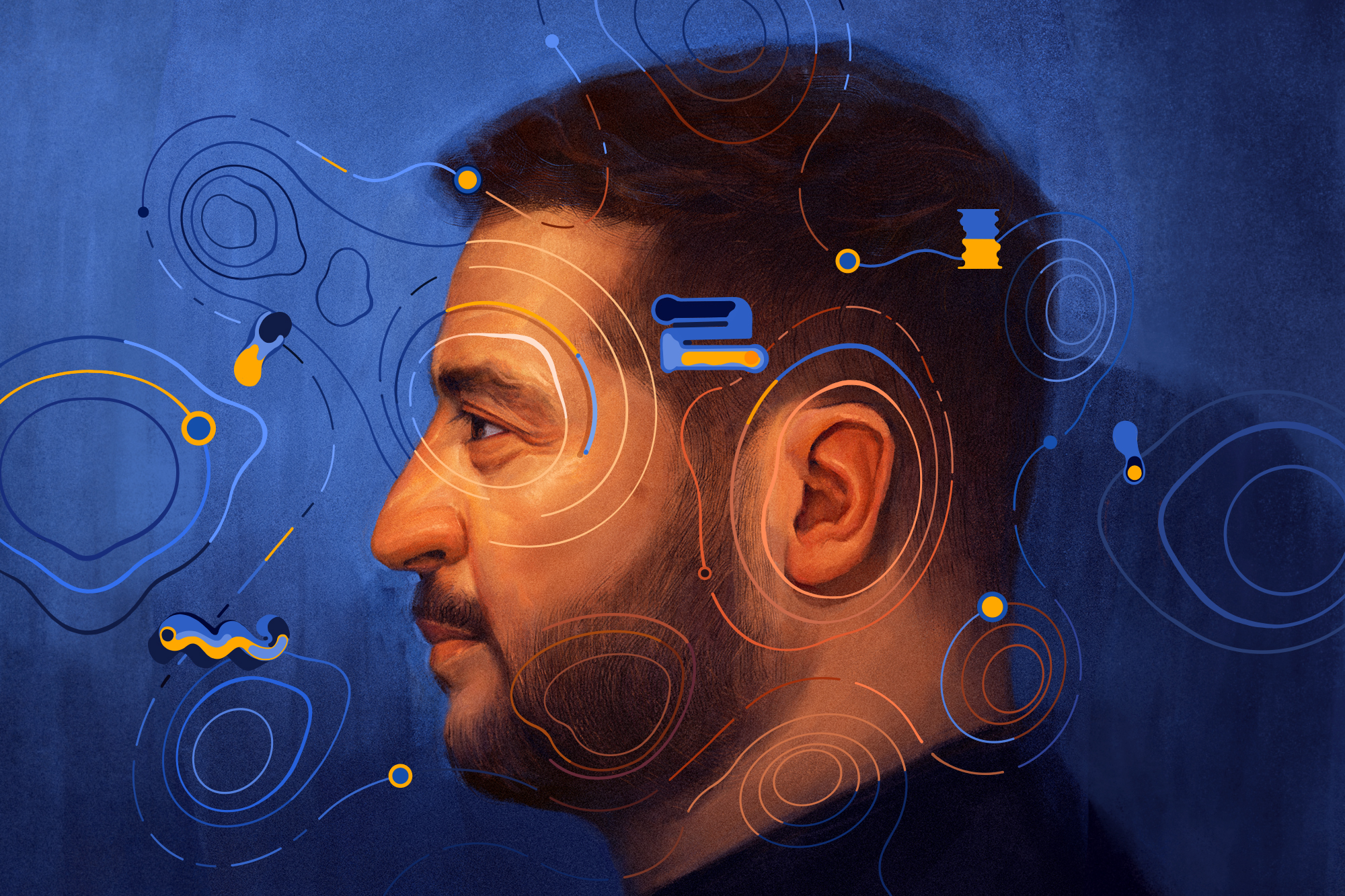
When Ukraine became independent in 1991 amid the dissolution of the Soviet Union, it was a country in search of a national idea. This wasn’t straightforward: The ancestors of Ukraine’s citizens played different roles in a national history that included both great achievements and bloodshed. People searched for something beyond a belief in their constitution that could bring them together across differences in politics and life experience.
Ukrainians have long struggled with forces that threatened to divide their society. Under Soviet rule, Moscow’s policies of Russification in Ukraine had contributed to a situation that made independent Ukraine seem divided along the Dnipro River, with Ukrainian speakers on one side and Russian speakers on the other. Today, the fact that many Ukrainians still speak Russian in everyday life is in many ways a legacy of those Soviet-era policies — including the death by starvation of millions of Ukrainians because of grain confiscation, and the summary executions of hundreds of Ukrainian artists, writers and intellectuals — not an expression of brotherhood with Russia, no matter what the Kremlin might say.
But Ukraine has never been such a binary place. Ukrainians have a long multicultural history that includes not only ethnic Ukrainians but also people who identify as Jewish (including Zelenskyy), Bulgarian, Crimean Tatar, Hungarian, Greek, Korean, Polish, Romani, Romanian, Russian and others, whose languages are still spoken in Ukraine today. In his 2020 presidential New Year’s greeting, Zelenskyy acknowledged the nature of Ukraine’s diversity by speaking not only in Ukrainian, but also in Hungarian, Crimean Tatar and Russian.
In 2014, when Russia annexed Crimea and invaded Ukraine’s Donbas region under a thinly veiled pretext of supporting Russian-speaking separatists, Ukrainians largely united against these violations of their country’s territory. At that time, Zelenskyy’s comedy troupe voiced in metaphor Ukrainians’ frustration at Russia’s incessant lies and refusal to let them go and their pain at the tepid response of the international community, singing of “European ‘brothers’ who traded us for gas.”
During those years, the stress of the Russian occupation of Crimea and Donbas threatened Ukrainians’ unity. Some noticed an opportunity to win national elections if parts of the Russified east were no longer part of Ukraine, murmuring in private about being ready to “let the Donbas go.” But even then, still working as a comedian, Zelenskyy was not ready to abandon his compatriots in Russia-occupied areas. In their comedy skits, Zelenskyy and his troupe amplified their longstanding criticisms of Russian chauvinism, turning the tables to pantomime and mock Russians’ longstanding ethnic slurs, lies about Ukrainians and attitudes about Crimea.
At that time, Zelenskyy and his comedy troupe performed mainly in the Russian language, reaching Ukrainians who used Russian in daily life and came from regions where people sometimes felt alienated from politics in the capital, and who previously had sometimes struggled to see themselves as sharing common experiences and identities with their compatriots who spoke the state language at home and in daily life. By making Ukrainians from different regions feel seen and valued, Zelenskyy invited them into a patriotism that held up love of Ukraine as a central value but did not insist on a particular ethnic or private linguistic identity. He and his troupe showed how Russian-speaking Ukrainians, who did not think of themselves as nationalists, could identify as Ukrainian patriots.
As a comedian, Zelenskyy and his troupe used an approach to thinking about Ukraine’s past that differed from the us-versus-them thinking that long dominated some public discussion about politics in Ukraine. Performing songs that reminded Ukrainians of shared experiences, he and his troupe not only validated local identities, but admitted mistakes and imperfections, acknowledged disagreement, and fostered a generous, inclusive idea of what it meant to be Ukrainian.
